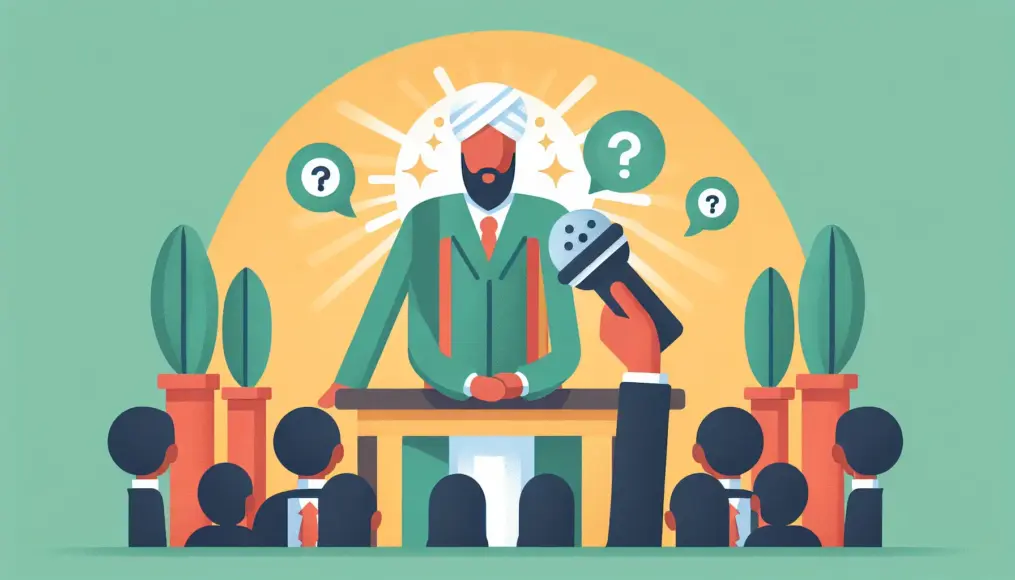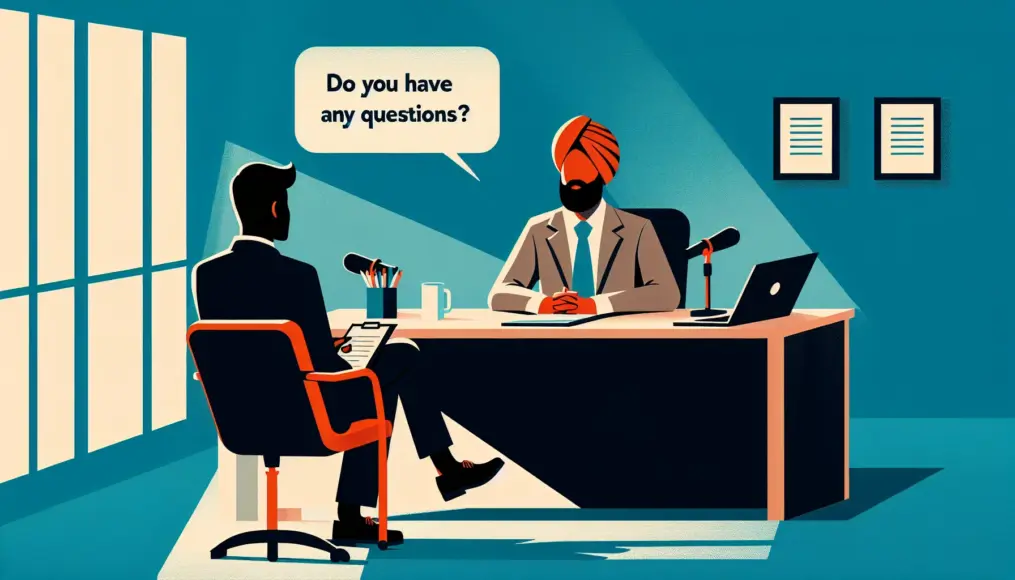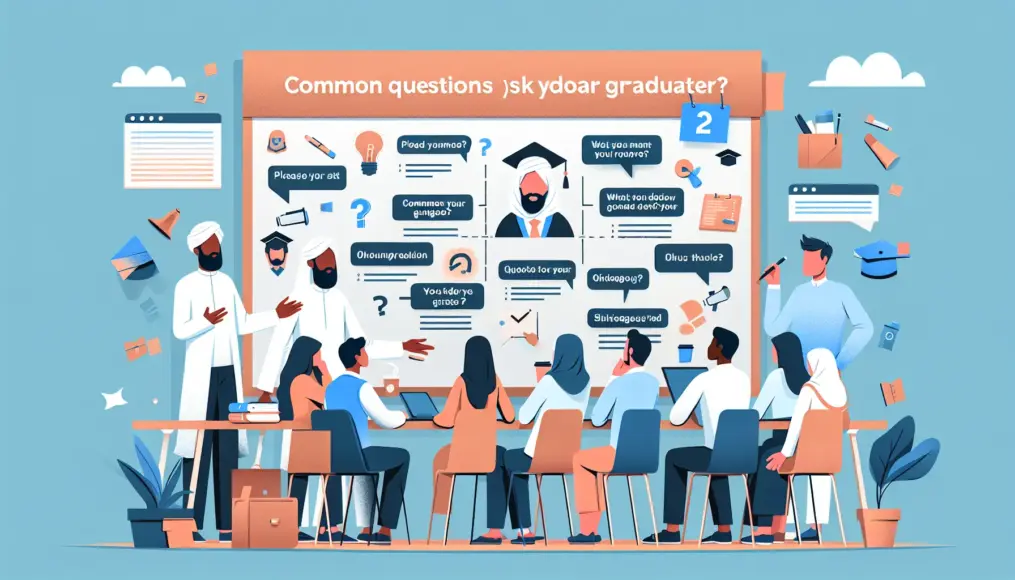When it comes to job interviews, the questions posed by the interviewer play a surprisingly crucial role in assessing your suitability and character.
Many job seekers often find themselves unsure about how to respond to these inquiries.
However, by grasping the intent behind the questions and preparing thoroughly, you can leave a positive impression on your interviewer.
- Learn how understanding the context of interview questions can lead to more effective answers
- Discover strategies for responding to common interview questions
- Explore ways to express your interest by asking insightful questions in return
By taking the time to understand what the interviewer is really asking, you can craft responses that not only highlight your qualifications but also reflect your personality. This insight can make a significant difference in how you present yourself during the interview process.
Understanding the Intent Behind Interview Questions
When it comes to interviews, the questions asked are more than just formalities.
Behind each question lies the interviewer’s desire to learn more about you and what you can bring to the table.
By understanding this intent, you can better prepare yourself for more effective responses.
Knowing the Background of the Questions
Interview questions primarily aim to uncover your experiences and values.
For instance, when asked about your previous job responsibilities, the interviewer wants to assess the skills you possess.
Additionally, questions about your motivation for applying are meant to gauge your interest in the company.
Interviewers aim to evaluate your personality and suitability through your answers.
With insight into the background of these questions, you can prepare more specifically.
- Interviewers want to verify your experience and skills.
- They assess your interest in the company through your motivations.
- Understanding the intent behind questions allows for more effective responses.
What Interviewers Are Looking For
It’s not just skills that interviewers are after.
They also place significant importance on your personality, teamwork abilities, and problem-solving skills.
For example, when they ask about your ability to work collaboratively, they want to see how well you can cooperate with others.
Recognizing that interview questions are designed to evaluate you from multiple angles is key.
With this understanding, your responses will naturally become more detailed and relevant.
- Interviewers value not only skills but also personality and teamwork.
- Different questions evaluate various aspects of you.
- Knowing the intent behind questions enables you to give more specific answers.
To further strengthen your mindset for handling interview questions, consider checking out How to Handle Difficult Questions in Interviews: Tips for Confident Responses. This resource offers practical advice on understanding the interviewer’s intent and responding with confidence.
Common Interview Questions and How to Answer Them
During an interview, there isn’t always a definitive answer to every question.
However, by understanding common questions and preparing thoroughly, you can approach the interview with confidence.
In this section, we’ll explore how to respond to questions about self-introduction and your strengths and weaknesses.
Tips for Self-Introduction
Self-introduction is often one of the first questions asked in an interview.
It’s important to convey your background and skills clearly and concisely.
Start by stating your name and where you’re from, then briefly touch on your education and work experience.
Finally, share what kind of role you’re looking for and how you can contribute to the company.
Just following this flow can help you deliver a solid self-introduction.
- Mention your name, hometown, and background
- Briefly touch on your education and work experience
- Clearly state how you can contribute
How to Discuss Your Strengths and Weaknesses
One of the most common questions in interviews revolves around your strengths and weaknesses.
When discussing your strengths, adding specific examples can make your answer more compelling.
For instance, instead of simply saying, “I’m very responsible,” you could elaborate with, “In my previous job, I was entrusted with a project and saw it through to completion with full accountability.”
On the flip side, when addressing weaknesses, it’s helpful to also mention how you’re working to improve.
For example, saying, “I sometimes get anxious under pressure, but I’ve been organizing my tasks by priority to manage it better,” leaves a positive impression.
If you’d like to dive deeper into interview preparation, check out Key Points to Remember Before Job Interviews.
- Share strengths with specific examples
- Discuss weaknesses along with improvement strategies
- It’s important to leave a positive impression
How to Surprise Interviewers with Thoughtful Questions
Asking insightful questions during an interview is crucial.
Through these reverse questions, you can demonstrate your interest and understanding of the company.
In this section, we’ll explore effective examples of reverse questions and how they can deepen your comprehension of the organization.
Examples of Effective Reverse Questions
Reverse questions provide a great opportunity to express your curiosity to the interviewer.
For instance, asking, “Can you tell me about the company culture?” shows your interest in the organizational environment.
Another good question is, “What are the most important skills required for this position?”
Asking these types of questions can leave a positive impression on the interviewer.
- Inquire about the company culture
- Clarify the required skills
- A great opportunity to show your interest
Deepening Your Understanding of the Company
By asking reverse questions, you can gain a richer understanding of the organization.
For example, asking, “What recent project has stood out to you?” can help you learn more about the company’s activities and values.
These questions also allow you to reflect on the company’s vision and goals.
By preparing thoughtful reverse questions, you not only enhance your understanding of the company but also create an opportunity to reassess your fit for the role.
If you’re curious about the best ways to respond when asked, “Do you have any questions?” during an interview, be sure to check out the best responses to “Do you have any questions?” in an interview.
- Ask about recent projects
- Gain insights into the company’s vision and goals
- Reassess your fit for the role
Preparing for Interview Questions
Being well-prepared for interview questions is the first step toward success.
When you prepare, you can approach the interview with confidence.
In this section, we’ll delve into the importance of mock interviews and how to effectively use feedback.
The Importance of Mock Interviews
Mock interviews are a fantastic way to practice in an environment that closely mimics a real interview.
By asking a friend or family member to play the role of the interviewer and pose actual questions, you can experience the tension of an interview while also refining your answers.
Moreover, mock interviews help you become more aware of your language use, facial expressions, and posture.
In this way, mock interviews serve as a crucial part of your preparation for the big day.
- Experience the pressure of an interview during a mock session
- It’s beneficial to involve friends or family
- Check your language and posture
Leveraging Feedback
After your mock interview, receiving feedback is essential.
Gather insights from the person playing the interviewer about your responses—what worked well and what needs improvement.
Using this feedback, you can refine your answers and practice further, leading to a stronger performance.
On the other hand, if you proceed without feedback, you might miss important areas for improvement before the actual interview.
Additionally, by checking out how to ask questions that leave a lasting impression in interviews, you can learn specific strategies to utilize feedback effectively.
- Feedback helps identify areas for improvement
- Understand what went well
- Refine your responses and practice to enhance performance
Conclusion
Being well-prepared for interview questions is a crucial step towards success.
Understanding the intent behind each question and practicing through mock interviews can help build your confidence.
Utilizing reverse questions allows you to deepen your understanding of the company while also demonstrating your interest.
- Recognize that interview questions have a purpose
- Experience the pressure of a mock interview to self-evaluate
- Use reverse questions to enhance your knowledge of the company and convey your appeal
Make sure to prepare thoroughly before stepping into that interview!
We’d love to hear about your experiences and thoughts in the comments.



Comment